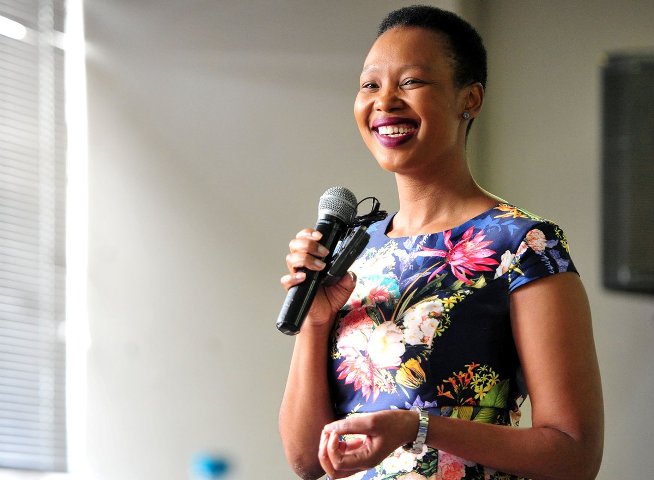South Africa Accelerates Spaza Fund Rollout Ahead of Global SME Ministerial
In addition to financial assistance, beneficiaries receive support in meeting hygiene, health, and regulatory standards, ensuring that the food sold is safe and of high quality.

- Country:
- South Africa
The South African government has disbursed R6 million out of the allocated R500 million from the Spaza Shop Support Fund (SSSF) to eligible township and rural-based food retailers. While still in the early stages of implementation, the fund represents a transformative effort by the Department of Small Business Development to revitalize the informal retail economy and enhance the competitiveness of South African-owned spaza shops.
Unveiled just a month ago, the SSSF aims to empower small-scale food businesses, especially those operating in under-resourced areas, by providing a blend of financial support, infrastructure upgrades, and regulatory assistance.
Strategic Fund Backed by Key Development Agencies
The SSSF is jointly administered by the National Empowerment Fund (NEF) and the Small Enterprise Development Finance Agency (SEFDA). It offers up to R300,000 per shop, composed of both grants and low-interest loans, to qualifying shop owners.
The funding is earmarked for:
-
Initial stock procurement
-
Shop infrastructure improvements
-
Business tools and development resources
-
Adoption of Point of Sale (POS) systems
In addition to financial assistance, beneficiaries receive support in meeting hygiene, health, and regulatory standards, ensuring that the food sold is safe and of high quality.
However, progress has been slower than anticipated. According to Minister Stella Tembisa Ndabeni, this is due to the extensive verification process involving multiple stakeholders, including health inspectors, site verification officers, and officials responsible for confirming South African citizenship and operating permits.
“This is moving at a slow pace due to all the parties that are involved in coordinating the work, which includes inspections, verification of citizenship as well as site and health inspections,” the Minister explained during a media briefing in Pretoria.
Global SME Ministerial Meeting to Highlight Small Business Growth
The announcement of the fund’s rollout comes just weeks ahead of the first-ever Global Small and Medium-sized Enterprises (SME) Ministerial Meeting, which South Africa will host in partnership with the United Nations Small Business Agency. Set to take place from 22–24 July 2025 in Johannesburg, the event will provide a global platform for MSME policymakers, multilateral institutions, and development stakeholders to shape the international small business agenda.
Over 50 countries, including India, Brazil, Kenya, Egypt, Ethiopia, Switzerland, Costa Rica, Indonesia, and Cambodia, have confirmed participation. The gathering will focus on identifying practical ways to strengthen the MSME ecosystem through shared policy experiences and collaborative frameworks.
Advancing the MSME Agenda Through the G20
South Africa’s hosting of the Global SME Ministerial coincides with its Presidency of the G20 from December 2024 to November 2025, under the theme “Solidarity, Equality, and Sustainability.” As part of this leadership role, Minister Ndabeni underscored the country’s intent to push for the creation of a dedicated MSME Working Group within the G20 structure, ensuring that micro and small enterprises have a central role in global economic policy discussions.
“We are unequivocal that the G20 needs a sharper MSME focus with its own dedicated Working Group, and we will use this Global Ministerial to bolster this position,” she affirmed.
The Minister also stressed the importance of the upcoming Startup20 Task Force planning sessions, which will take place ahead of the Ministerial. These sessions will allow startup ecosystem leaders to interact with a wider network of MSME champions, offering a prelude to a unified global policy framework for small businesses.
Building Strong Partnerships for a Resilient Small Business Ecosystem
Minister Ndabeni has called on international governments, development partners, and private sector actors to join in the push to uplift MSMEs, particularly those led by women, youth, and persons with disabilities.
“The challenges that small businesses face are vast and cannot be tackled by any one nation alone. Thus, I passionately urge governments, international agencies, development partners, and the private sector to join us in strengthening MSME ecosystems,” she said.
The government’s vision extends beyond financial support to include policy reform, regional cooperation, and strategic investment in entrepreneurship development.
A Turning Point for Informal Retail and Global SME Cooperation
With only R6 million of the R500 million disbursed so far, the SSSF’s slow rollout highlights the complexity of delivering targeted financial assistance in informal markets. However, the government remains confident that coordination will improve as systems mature and more businesses are onboarded.
Coupled with the upcoming Global SME Ministerial Meeting, these initiatives represent a critical opportunity for South Africa to reassert its leadership in global SME development, while delivering meaningful support to thousands of small businesses that form the backbone of local economies.










